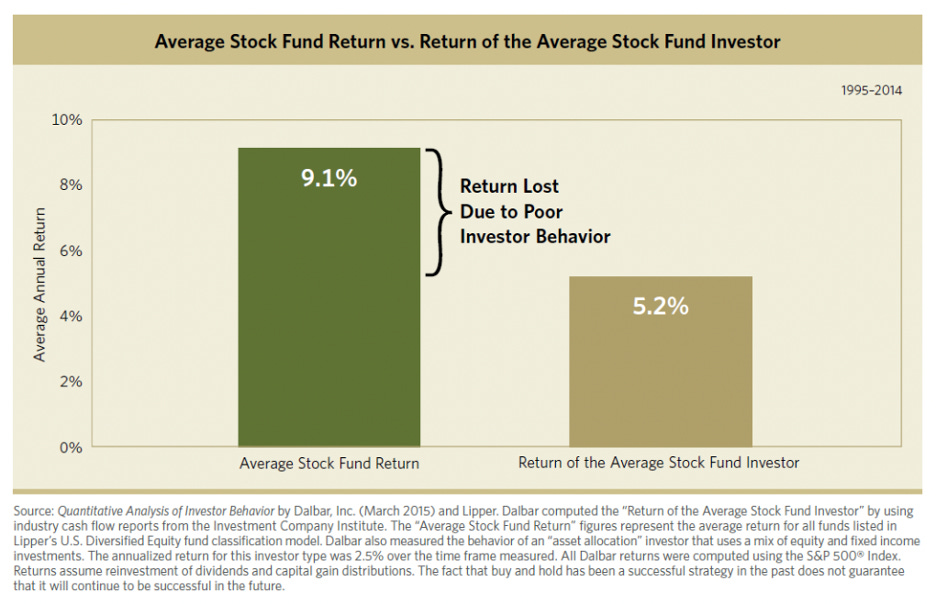In today's fast-paced work environment, it's easy to fall into the trap of equating busyness with productivity. However, the two concepts are fundamentally different. Being busy involves engaging in tasks and activities, while being productive means achieving meaningful results and goals. Many investors, including professional portfolio managers, mistakenly fall into the activity trap, flipping their book and over trading in a clouded disbelief that they are being productive. Numerous studies have shown that
The Illusion of Busyness
Busyness often gives the illusion of productivity. Filling one's day with meetings, emails, and tasks might feel like progress, but it doesn't necessarily contribute to achieving significant outcomes. A study by Atlassian found that employees spend an average of 31 hours per month in unproductive meetings, highlighting how busyness can detract from actual work. Investors and professional portfolio managers are no different. Many studies have shown that investors are their own worst enemy. This is known as the "Investor Behavior Penalty." In a Dalbar study of investor behavior, those that actively traded, underperformed the average stock fund over time. I find this compelling.
The DALBAR Institute 2015 study showed that investors receive four percentage points less per year than the S&P 500 generated from 1992 to 2015, and the average holding period for a typical investor is six months. Six Months!! When you hold a stock for less than a year, you are not using the stock market to acquire business ownership positions and participate in the growth of that business. Instead, you are just guessing at short-term news and expectations, and your returns are based on how other people react to that news information. In aggregate, that kind of attitude gets you three percentage points less per year than you’d get from doing nothing at all beyond making the initial investment in the index fund of the S&P 500. (“Fidelity’s Best Investors Are Dead,” The Conservative Income Investor, April 8, 2020)
Focus on Outcomes, Not Outputs
Productivity is about focusing on outcomes rather than outputs. Completing numerous tasks might seem productive, but if these tasks don't align with your primary goals, they contribute little to overall success. According to a Harvard Business Review article, effective productivity involves prioritizing tasks that have the most significant impact on achieving your objectives.
The Importance of Prioritization
One key to true productivity is prioritizing tasks based on their importance and urgency. Stephen Covey’s Time Management Matrix, as described in his book "The 7 Habits of Highly Effective People," categorizes tasks into four quadrants: urgent and important, important but not urgent, urgent but not important, and neither urgent nor important. Focusing on important tasks, whether urgent or not, leads to higher productivity.
The Role of Deep Work
Cal Newport, in his book "Deep Work," emphasizes the importance of uninterrupted, focused work periods for achieving high productivity. He argues that shallow tasks, such as checking emails or attending unproductive meetings, often consume time but add little value. Deep work, on the other hand, allows individuals to produce high-quality output in less time by focusing intensely on the task at hand.
The Pitfall of Multitasking
Multitasking is often mistaken for productivity, but research shows it can reduce efficiency and performance. According to the American Psychological Association, multitasking can decrease productivity by up to 40%. The constant switching between tasks prevents individuals from fully concentrating on any one task, leading to lower quality work and longer completion times.
The Pareto Principle
The Pareto Principle, or the 80/20 rule, suggests that 80% of results come from 20% of efforts. This principle highlights the importance of identifying and focusing on the tasks that drive the most significant results. By concentrating on these high-impact activities, individuals can achieve more with less effort, thereby enhancing productivity.
Conclusion
Activity alone does not equate to productivity. True productivity requires focusing on meaningful tasks that align with your goals, prioritizing high-impact activities, engaging in deep work, and avoiding the pitfalls of multitasking. By understanding and implementing these principles, individuals can move beyond mere busyness to achieve substantial, valuable outcomes.
For further reading, consider these sources:
Atlassian: The Cost of Unproductive Meetings
Harvard Business Review: How to Boost Your Team’s Productivity
American Psychological Association: Multitasking
Stephen Covey: The 7 Habits of Highly Effective People
Cal Newport: Deep Work
Enjoy and be safe.





